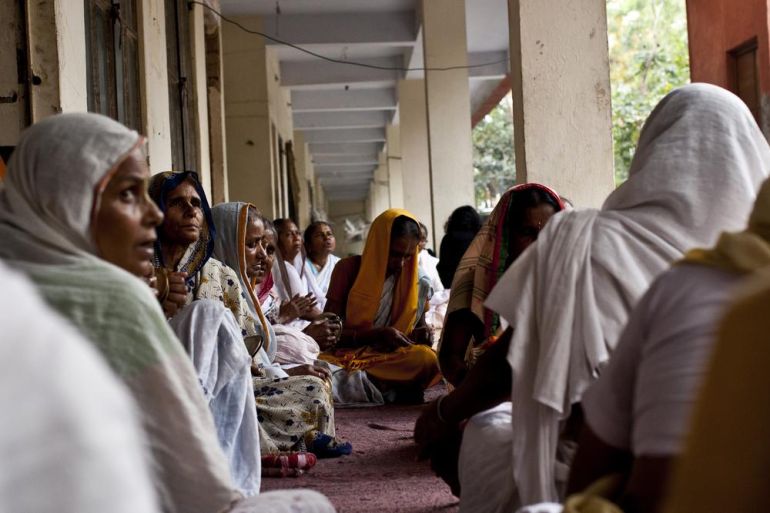In Pictures
In Pictures: Reaching out to Vrindavan widows
In break from tradition, activists are training women seen as burden in textile and other craft production.

Vrindavan, a town in northern India with an ancient history, is regarded as one of the most sacred places in Hinduism.
The town is also home to thousands of widows who traditionally spend their remaining days without their family, leading a life of religious dedication. They are often sent to Vrindavan by their remaining family members once they become widows, rejected as inauspicious and seen as a burden.
Living communally in ashram temples, they fill their time praying and chanting to lord Krishna in exchange for small amounts of rice, water and a bed. They also beg on the streets to eke out a living.
In recent years, traditions have been broken as NGOs, along with international fashion designers, are training women in textile and other craft production, which they are paid for.
The widows are provided with lessons in Bengali, English and Hindi literacy, as well as financial and healthcare support. NGOs are increasingly expected to look after India’s impoverished widows who are consistently neglected by the government.
Living together with a sense of solidarity, this community of widows lead a simple and poverty-stricken life but with dignity and purpose.
Additional text by Patrick Keddie













